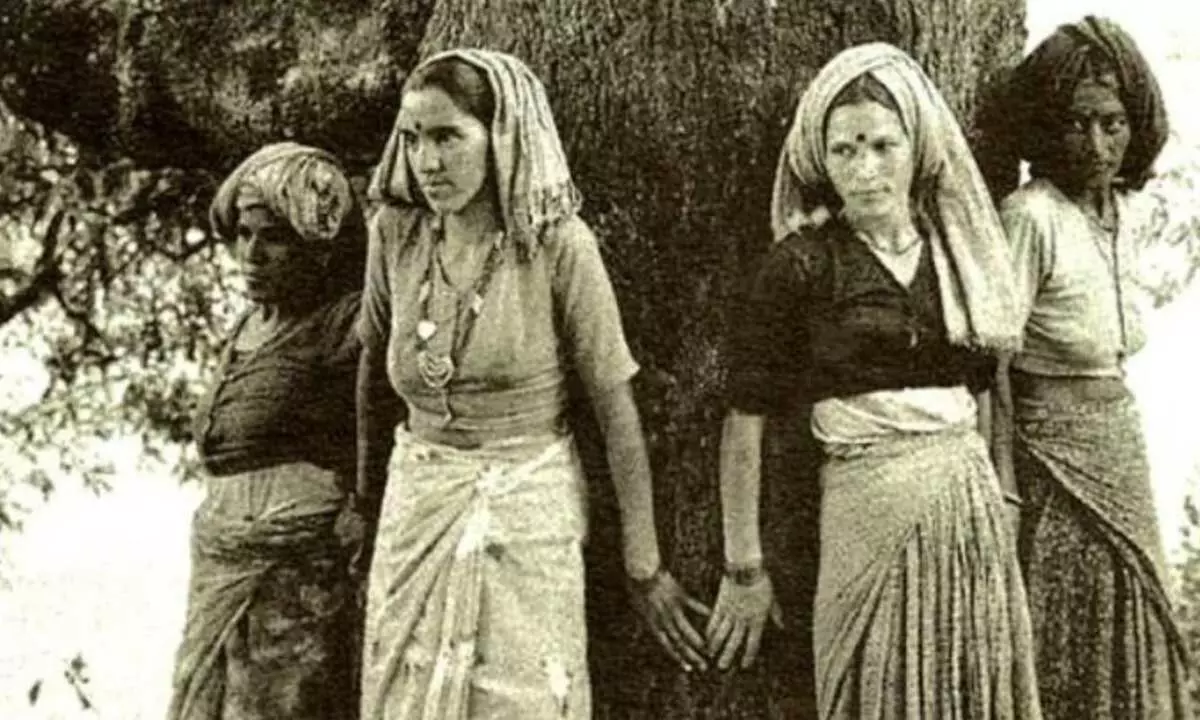Missing the wood for the trees

Missing the wood for the trees
The scorching heat wave has forced us all inside. While studies show that the habit of having a cup of tea outside your home with your friends has already reduced the business by an estimated 30 per cent, rising temperatures have for all purposes eaten up the spring season.
The scorching heat wave has forced us all inside. While studies show that the habit of having a cup of tea outside your home with your friends has already reduced the business by an estimated 30 per cent, rising temperatures have for all purposes eaten up the spring season. We jumped straight from the usually cold winters to searing hot summers this year, missing the spring season in between.
For the standing crops, and that includes fruits, vegetables and flowers, the sudden spike in temperatures has hastened maturity and in some cases resulted in dropping of tiny fruits and hit flowering. For staple food crops, the sweltering heat wave has resulted in shrivelled grains, thereby causing a significant drop in yield. Everyone agrees that the unprecedented heat wave – right from the crop fields of Argentina to parts of Mexico, Texas in the United States and to north India and Pakistan in South Asia – has its roots in the extreme weather changes resulting from the destructive global climate change phenomenon that the world is in a deadly grip of.
No one is willing to take a closer look to see how he or she may knowingly (and unknowingly in some cases) be responsible for this unprecedented heat wave, which some say is the worst in 122 years. Why I said knowingly is because a majority knows what it means to cut down a tree, and still keeps quiet. Most people do understand the ecology and economy that a tree sustains but simply turn a blind eye when they read news reports of tens and hundreds of thousands of trees likely to be felled down in the name of a development project. Anyone who dares question is swept by a wave of right-wing trolls which invariably blames him or her for the lack of development that continues to keep the country in a backward state. These are the people who are depriving the country of the ability to move fast on a growth trajectory; an emerging economy needs to build superior infrastructure to attract investments and unleash development, goes the usual refrain.
Unlike the largely uneducated women folk of the Pauri-Garhwal region who gave us the famed Chipko movement, by hugging trees to protect them from being axed, the educated and that includes the elite from some of the best institutions in India and abroad, remain just as remotely unconcerned as possible, at the way trees are being mercilessly cut down. They don't even realise that cutting down trees is what actually has led to extreme heat wave conditions across the continents. Blaming the climate change for the extraordinary heat wave sweeping across is so easy, but it takes a lot of courage to point the needle of suspicion to you.
A 13-year-old Indian climate activist, Aarav Seth, tweeted the other day with a picture of a fully grown tree and the message: "Dear human, please don't destroy me. I will give you shelter, food, water and oxygen." With the tree cover disappearing at a fast pace, the bald surface is exposed to the red-hot sun. In another message, Dr QU Dongyu, the Director General of the UN Food and Agricultural Organisation (FAO) tweeted about the Argan tree that grows in the semi-arid regions and forms the frontline defence against desertification: "The tree and its habitat are ecologically indispensable for culture, agriculture, food security, rural livelihoods and climate change mitigation."
On other words, you can't miss the forests for the trees. But regardless, thousands of fully grown trees continue to being logged down without any remorse and that too in the name of development. A cover story in the magazine Down to Earth (Feb 16-28, 2022) talked of 25.87 million hectares of forests in India that is missing from the latest assessment of the forest cover. Internationally, the Global Forest Resource Assessment Remote Sensing Survey 2020 (released in early May, 2022) tells us that ever since the beginning of this century, which means in the past two decades, the world has lost tropical forests in an area almost equal to the size of Europe. With deforestation of this magnitude and scale, what do you expect will happen to temperatures?
Heat wave will only worsen. It will literally be like living in an oven. When we cut down a tree, we actually end up destroying its natural ecosystem. Just to illustrate, when you are standing under a neem tree and that too in scorching sun, the temperature difference is as much as ten degrees. This is not the only role trees play, and as someone rightly said and we must acknowledge that trees are humanity's bank accounts. Even in economic terms, we have perhaps forgotten that a Supreme Court constituted team of experts had valued a tree, with an average lifespan of 100 years, to be worth Rs 72-lakh. This is based on the economic value that has been ascribed for the immense ecological services trees provide to mankind and nature.
Deforestation in the Amazon forests, the green lungs of the planet, this year was 418 per cent higher than last year. In the name of economic growth, pristine forests are being felled at a pace that is now resulting in less carbon being absorbed thereby taking us closer to a tipping point. While the international community has largely kept quiet, preserving forests seem to have been left to a miniscule percentage in the society, comprising activists, environmentalists and some concerned fellow citizens. For years, a small section of the society has always stood up for the sake of protecting the tree cover, even if it ended in vain. I see this happening now at various points in the Char Dham project in Uttarakhand and also at the Hasdeo forests in Chhattisgarh. While thousands of trees are being logged down, the tribals and locals standing up face the ire of security forces, primarily put into action to safeguard corporate interests.
We must applaud these few, the environmentally-conscious brave people. At least, they stepped out. But by keeping mum, we actually help the process that exacerbates climate change, and the resulting extreme heat waves should tell us that our silence comes with a heavy price. It has pushed the humanity fast towards a climate emergency. Don't forget, any harm we inflict on nature will eventually return to haunt us. And when that happens, I don't think any amount of technological prowess and economic development can save us from facing a catastrophe.
It is getting closer. This week the World Meteorological Organization (WMO) has sounded an unequivocal warning saying that there is a 50:50 per cent probability that the benchmark 1.5 degree temperature rise will happen in the next four years. "Increasing temperatures mean more melting ice, higher sea levels, more heat waves and other extreme weather, and greater impacts on food security, health, the environment and sustainable development."
(The author is a noted food policy analyst and an expert on issues related to the agriculture sector. He writes on food, agriculture and hunger)








